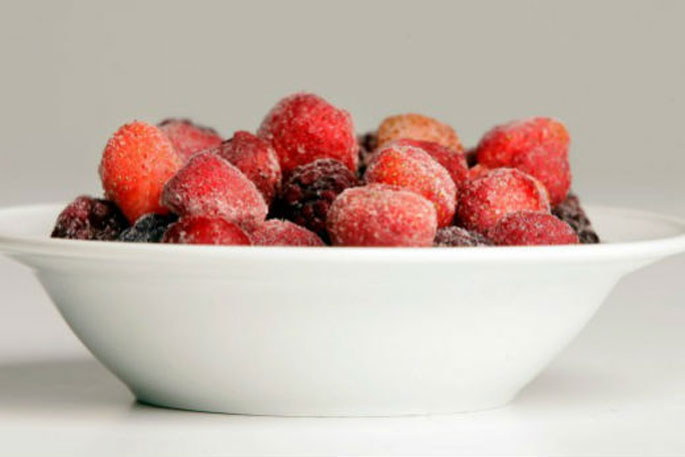Alex Hawij doesn't think she'll ever eat berries again after contracting hepatitis A – which has left her with yellow skin and unable to drink alcohol for a year.
Her case is suspected to be part of a nationwide outbreak linked to imported frozen berries, which the Ministry of Health has linked 25 cases to so far.
Eleven of those cases have required hospital treatment.
Alex, who is yet to have official confirmation her infection was from berries, was laid up in hospital for six days.
Initially, the mum-of-four thought her persistent headache and nausea were Covid-19, since early symptoms of infection can be mistaken for the flu.
But when she kept returning negative tests and the symptoms turned into abdominal pain while her skin turned yellow, she knew something else was wrong.
When she got to her doctor, Alex's GP immediately called for an ambulance to take her to hospital where doctors worked to figure out what was wrong with her.
But days passed and her symptoms slowly got worse.
'It was really scary, it was probably the scariest moment of my life,” she says.
It was a strange relief when the doctors told her she had hepatitis A – although that was just the start.
Alex is back home, but isn't allowed to work for another month and has been told it might be about six months before she feels like she did before the infection.
The infection severely affected her liver and has left her with yellow skin, which is slowly improving.
Because of the damage to her liver, she also is not allowed to drink alcohol for a year and has put herself on a strict diet – which won't include berries.
She has been in regular contact with contact tracers at the Ministry of Health, who told her the case is likely linked to the wider outbreak.
Although exactly how she was infected is unknown, Alex says she doesn't think she'll ever eat berries ever again – insisting anyone who does, should boil them before eating them.
New Zealand Food Safety deputy director-general Vincent Arbuckle says its investigations to date, and the evidence available through the cases, continues to support the conclusion that the source was most likely frozen berries from Serbia.
However, 'due to complexities in the frozen berry supply chain, we have been unable to pinpoint the specific point in the food chain where the contamination occurred”.
'Only the Pams brand products named in the recall have been removed from sale. This voluntary recall is supported by our risk assessment,” the Ministry for Primary Industries has said.



0 comments
Leave a Comment
You must be logged in to make a comment.